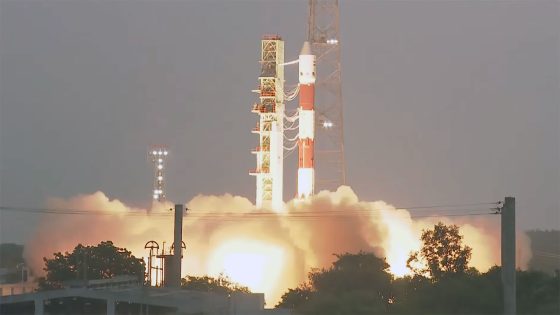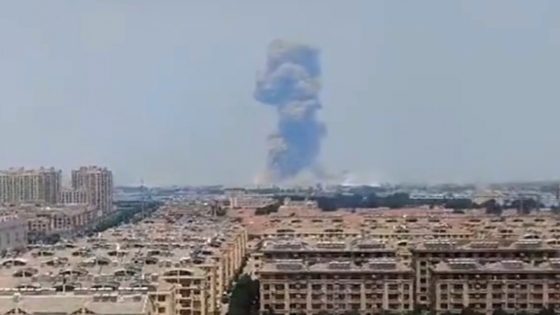India‘s recent attempt to launch an Earth-observing radar satellite ended in failure, marking a setback for the Indian Space Research Organisation (ISRO). The EOS-09 spacecraft was scheduled to lift off on May 17, 2025, at 8:29 p.m. EDT (2025-05-18 05:55:00 IST) but lost communication due to an issue with the rocket’s third stage.
- ISRO's EOS-09 satellite launch failed.
- PSLV-C61 rocket experienced third stage issue.
- Launch occurred on May 17, 2025.
- Satellite equipped with synthetic aperture radar.
- Significant for security along India's borders.
- This was ISRO's 101st launch overall.
ISRO Chairman V. Narayanan confirmed that while the first two stages performed normally, the mission could not be accomplished after an anomaly was detected during the third stage. This incident highlights the complexities involved in space exploration and raises questions about the future of India’s ambitious satellite program.
The failure of the EOS-09 mission prompts critical reflection on the reliability of space technology. How can ISRO improve future launches? What implications does this have for India’s security landscape?
- The EOS-09 was intended to enhance surveillance capabilities.
- This marks only the third failure in PSLV’s 32-year history.
- ISRO aims to analyze the failure and return stronger.
As ISRO prepares for future missions, the focus must remain on innovation and reliability. Will this experience lead to stronger protocols and technologies in upcoming launches?

































